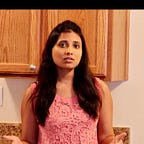Why Everyone Should Learn to Code
If you’re from one of the two Telugu speaking states in India and you’ve come to the US to pursue your higher education, the obvious assumption about you is that you’re an Engineer. But fortunately or unfortunately, I do not fit into that stereotype. I did my Bachelors in Economics from Lady Shri Ram college and then, I went on to do my Masters in Finance from University at Buffalo. At the time I was doing by Bachelors, Python as a programming language was considered (almost) irrelevant in the Finance industry.
But today, things look quite different. The advent of big data has transformed the landscape of Finance industry. Whether we’re talking about Algorithmic Trading that uses historical data to maximize portfolio returns or we’re talking about analyzing a single stock’s performance over a period of time, programming languages like R and Python can be quite helpful.
The other day, I was talking to a friend who’s a Political Science graduate. She was talking to me about her plans to get into a PhD program in Political Science at one of the Ivy League Schools. Apparently, in order to get admitted into the PhD program, the candidate needs to have some coding background preferably in R and Python. At the outset, I was a little surprised because I thought what would a Political Science graduate do with the coding knowledge. I gave it a little thought and now, I have a completely different perspective.
Think about the scenario where a Political Scientist wants to predict the outcome of an election or analyze the probability of a candidate winning an election. In any such given scenario, he or she would have to analyze data and identify patterns. And this is where programming languages like Python can be useful.
This whole incident reminded me of the time I met Dr. C. Rangarajan, former Governor of Reserve Bank of India. I told him that I took up Economics because of him, and that he was my inspiration. That’s when he talked to me about an interdisciplinary approach. He said it’s good that I want to be an Economist but that shouldn’t stop me from learning about let’s say, Political science or History or Technology.
Honestly, that didn’t make a lot of sense to me at that time because my idea of education was very segmented (For eg, a Political Scientist would only know about Political Science).
But in the recent times, it looks like we’re all slowly moving towards education with an interdisciplinary approach (that Dr. Rangarajan was talking to me about), where a Political Scientist can be a coding expert or vice-versa.
